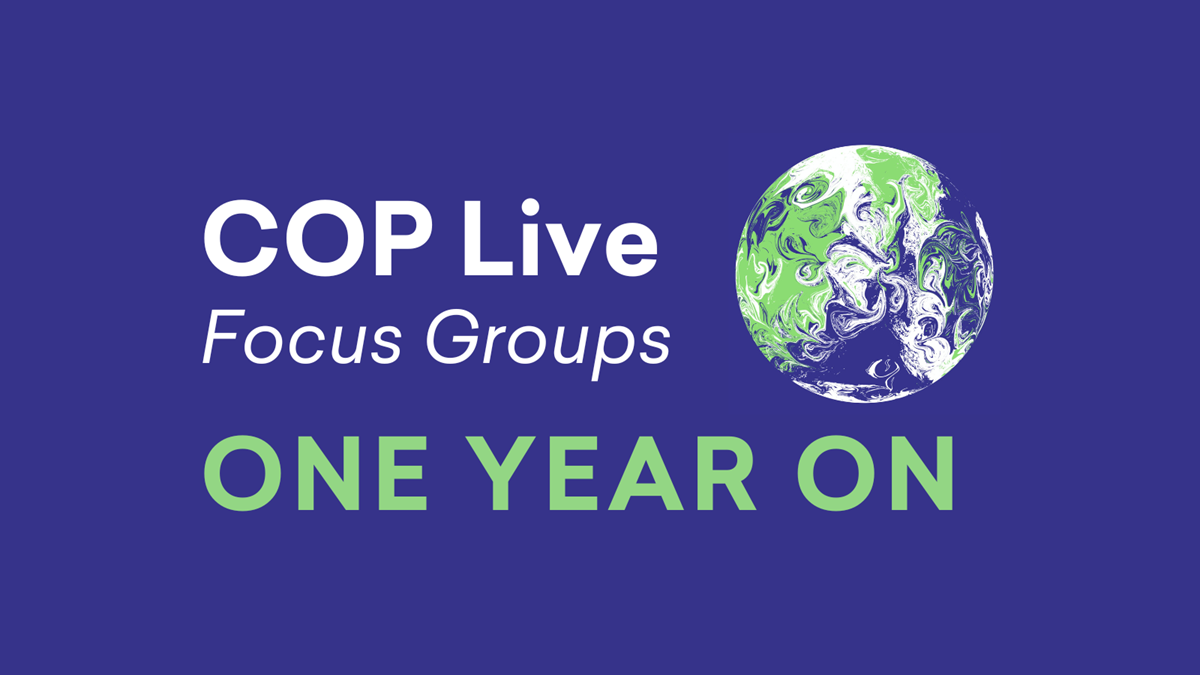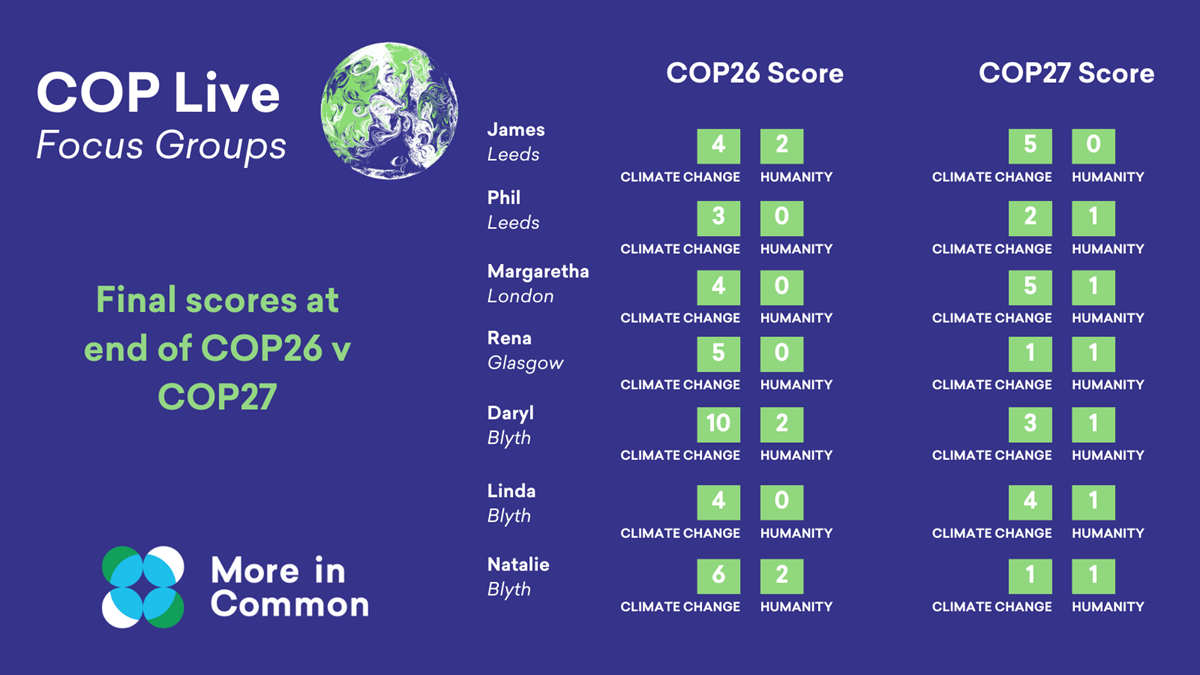During COP26, More in Common convened six focus groups with participants from across the British Seven segments to find out what the public thought about the big climate issues as world leaders were meeting to discuss.
As the COP27 took place last week, we caught up with seven of last year’s participants to find out how their views on climate change and our path to net-zero had changed since the UK hosted the summit in Glasgow.
Little progress and undelivered promises
More than anything else this group, who were drawn from across the country, with different political beliefs and backgrounds were frustrated that it seemed like nothing had changed since COP 26. This summer’s hot weather and our balmy November had brought home to the group how our climate was changing, and they were frustrated that politicians weren’t acting with more urgency.
While some recognised that the Russian invasion of Ukraine had made delivering on our climate commitments more difficult, others felt that should have been a renewed impetus to put the promises at COP26 into action.

